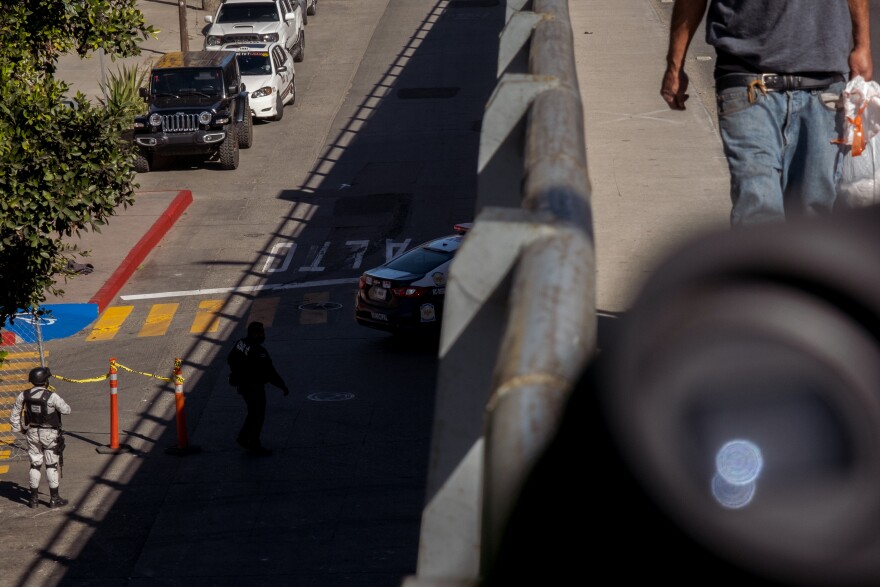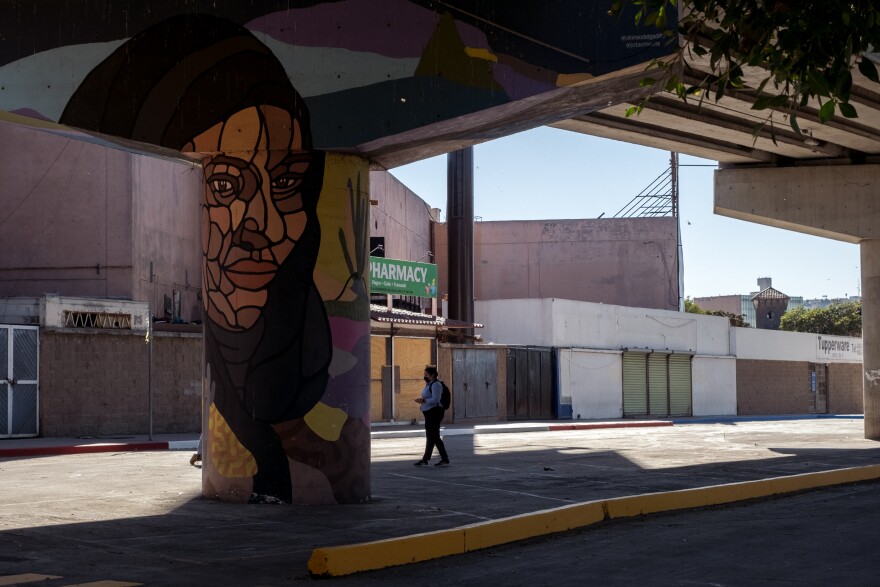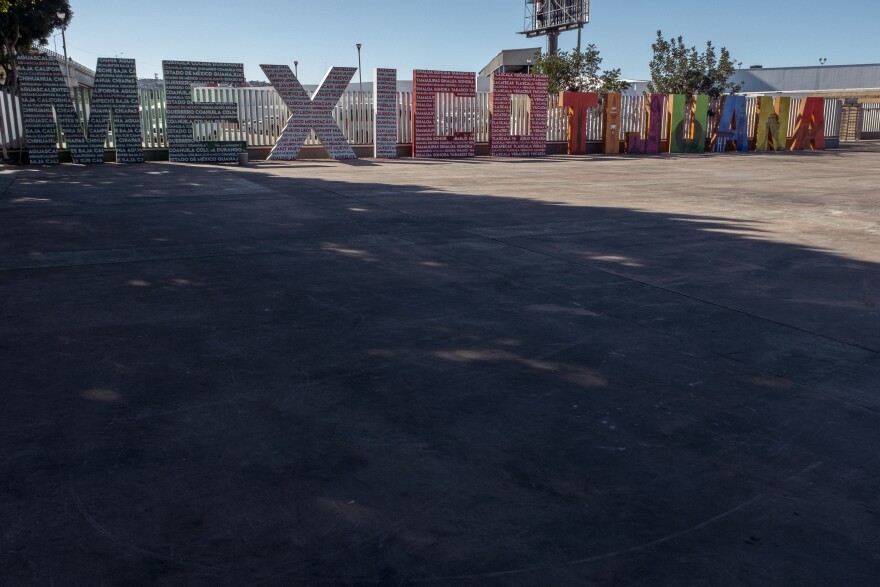About a hundred members of the police, National Guard and army on Sunday evicted 381 migrants, mainly Central Americans and Mexicans, from a makeshift camp they had been staying in for almost a year in Tijuana at the U.S. border crossing.
The migrants’ tents around El Chaparral crossing were demolished with the help of excavators and trucks while their inhabitants loaded their few belongings into bags and suitcases to be transferred to three local shelters.
“It was a relocation that had to be carried out carefully to avoid a collapse,” Tijuana Mayor Montserrat Caballero Ramírez told reporters, saying the families were living in a state of “insecurity” for health reasons.
Caballero Ramírez said the eviction was carried out peacefully and denied that the decision to take down the camp was in response to U.S. pressure.
“You know that Tijuana is governed by its own legal norms,” she said.
Sunday’s decision to shut down the camp, contradicts a previous promise from Caballero Ramirez to not force anyone out of the camp.
During an interview with KPBS in November, Caballero Ramriez said her administration would not remove anyone involuntarily. Instead, she said the plan was to encourage people to leave voluntarily by offering services in other shelters.
Caballero Ramirez went as far as refusing to give a date of when the camp would close.
“I cannot put a date on it because doing so would remove the voluntary nature of it,” she said.

Caballero Ramirez also said in November that Customs and Border Protection was pressuring her administration to clear the camp so they could reopen the San Ysidro pedestrian border crossing.
The 381 migrants, made up of 86 families, 24 single mothers with children, 33 men and three members of the LGBT community, were moved to the Migrant Integration Center shelter, the Salesian project and the Migrant Sanctuary, she said.
Migrants said the officers and soldiers arrived at 4 a.m., while many were still asleep. They were given 30 minutes to grab their belongings before trucks began breaking down the tents.
Some migrants told reporters that they were told to only pack three sets of clothing and their immigration documents because otherwise shelters would not take them in.
"It’s inhumane because they did it at dawn and the children were asleep,” said Mexican migrant Guadalupe Omeca, who had lived in the camp for seven months with her three children, grandson and her partner.
The “El Chaparral” camp began forming at the end of January 2021, with the arrival of the Biden administration, after U.S. authorities began to limit the flow of migrants in compliance with policies that force migrants to wait in Mexico for their immigration court hearings as well as for pandemic health measures.

The camp had become a headache for authorities in both countries because it was affecting traffic through one of three pedestrian crossings to the U.S. city of San Diego.
Activists and humanitarian organizations had expressed concerns about the situation of the migrants, many of them children, living in the makeshift camp. Last year, Mexico’s National Human Rights Commission urged Mexican authorities to guarantee respect for the human rights of the migrants and to offer them protection.
Some activists and migrant rights defenders criticized Sunday's eviction.
“Central American migrants and displaced Mexicans are human beings. They do not represent a threat to Mexico,” said Wilner Metelus, president of the Citizen Committee in Defense of Naturalized and Afro-Mexicans, on his Twitter account, calling the camp eviction a “shame”.
Honduran migrant Marleni Hernández complained that authorities treated them "as if we were criminals.”
“It’s hard, it’s not easy,” she said, her eyes brimming with tears as she acknowledged she felt very vulnerable being in a foreign country with two young daughters.

Gina Garibo, a program officer for American Friends Service Committee, said the Mexican government’s use of force traumatized vulnerable families who fled violence. It also perpetuated the stereotype that migrants are criminals, she said.
“It also fomented xenophobia from Tijuana residents toward people who lived in the camp,” she said.
Evicting the migrants only hides their plight away from the public eye, it does not do anything to actually improve their conditions, Garibo added.
One of the shelters the migrants were relocated to recently had a COVID outbreak, Garibo said.
A lot of the migrants in the camp – particularly those from Central America – were waiting to request asylum in the United States.
They were barred from entering the country via Title 42 – a Trump-era public health policy that the Biden administration has kept in place.
Under Title 42, border patrol officials can turn migrants without proper documentation away from the border without due process. Previously, migrants who expressed fear of going back to their country of origin were given an interview and a chance to see an immigration judge.
Updated on Monday Feb. 7, 2022 at 6:05PM






